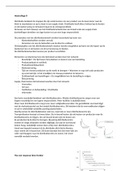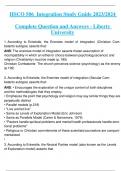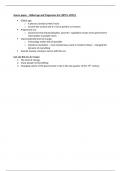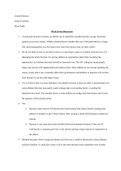Samenvatting
Chapter 1 - The mission and the method summary
- Instelling
- Technische Universiteit Eindhoven (TUE)
Summary of chapter 1 (the mission and the method) of Social psychology and human nature by Baumeister and Bushman. The order of the book is followed, and the summary is based on the key words of the book. Some useful tables are included. There is a table of contents, which may prove useful when sea...
[Meer zien]












